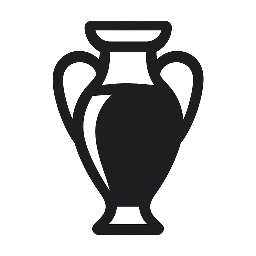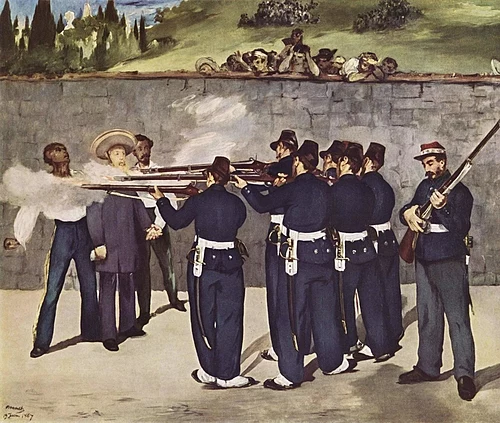Your basket is currently empty!
1306: Robert the Bruce Crowned King of Scotland

On March 25, 1306, Robert the Bruce, one of Scotland’s most celebrated heroes, was crowned King of Scots at Scone. His path to the throne was fraught with challenges and conflicts against English rule, which dominated Scotland at the time. Bruce began his fight for independence after he stabbed John Comyn, his rival for the Scottish throne. Over the following years, he waged a guerrilla war against the English army, employing tactics of surprise and swift raids. His determination and charisma drew many Scottish nobles and common people to his cause. The culmination of his struggle was the Battle of Bannockburn in 1314, where he secured a decisive victory over the English forces. Robert the Bruce remains a symbol of Scottish independence and resilience.
1566: Death of Suleiman the Magnificent (Unofficial Date)
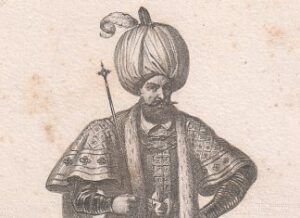
While the exact date of Suleiman the Magnificent’s death is a subject of debate, the unofficial date of September 7, 1566, is often cited. Suleiman I, also known as the Lawgiver, was the tenth and longest-reigning Sultan of the Ottoman Empire, ruling for over 46 years. His reign is considered the Golden Age of the Ottoman Empire, during which the empire reached its zenith of power and influence. He expanded the empire’s borders deep into Europe, Asia, and Africa, conquering important territories like Belgrade and Rhodes. Beyond his military successes, Suleiman was a great patron of arts, architecture, and science, and he implemented significant legislative reforms that improved the empire’s legal system. His death marked the beginning of the slow but inexorable decline of the Ottoman Empire.
1846: Birth of Antonio Abetti
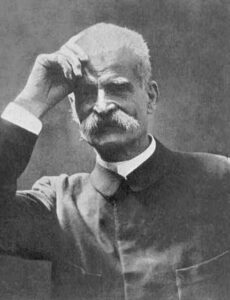
On June 19, 1846, in Gorizia, Antonio Abetti, a distinguished Italian astronomer and mathematician, was born. His early career was dedicated to civil engineering, but he soon shifted his interests towards astronomy. Abetti studied at the University of Padua, where he later became a professor of astronomy and the director of the observatory. He particularly distinguished himself through his work on measuring the positions of stars and comets, and the development of astronomical instruments. He was a pioneer in using photography in astronomy, which allowed him to make more precise observations of celestial bodies. His son, Giorgio Abetti, also became a renowned astronomer, continuing the family tradition. Antonio Abetti left a significant mark on Itali an and world astronomy with his contributions to precise measurements and innovative methods.
1867: Emperor Maximilian Executed
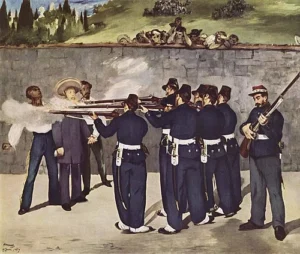
On June 19, 1867, the life of Ferdinand Maximilian Joseph, Archduke of Austria and the sole Emperor of the Second Mexican Empire, tragically ended. His reign in Mexico was brief and marked by political turmoil, fueled by French intervention and the support of Napoleon III. Mexican Republicans, led by Benito Juárez, never recognized his authority, considering him a foreign appointee. After the withdrawal of French troops, Maximilian found himself isolated and surrounded. He refused to leave the country and faced the army of Benito Juárez. He was captured and sentenced to death by firing squad in Querétaro, despite international appeals for clemency. His execution symbolized the end of European attempts at domination in Latin America and the triumph of Mexican sovereignty.
1953: The Rosenbergs Executed

On June 19, 1953, Julius and Ethel Rosenberg were executed in the electric chair at Sing Sing Prison in the United States. Their execution was the culmination of one of the most controversial trials in Cold War history. They were accused of espionage and conspiracy to provide atomic secrets to the Soviet Union. The case sparked enormous public division, with some viewing them as traitors and others believing in their innocence and that they were victims of anti-communist hysteria. The evidence against them was largely circumstantial, and many questions about their guilt remained unresolved for decades. The execution of the Rosenbergs was the only civilian execution in the U.S. for espionage during the Cold War and left a lasting mark on American history.
Died: Richard Nixon (1994), 37th U.S. President
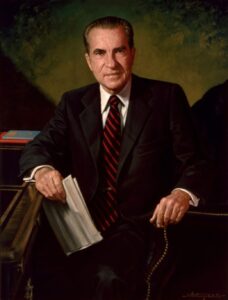
On April 22, 1994, Richard Nixon, the 37th President of the United States, passed away. His life and career were marked by both triumphs and controversies, leaving a profound and complex legacy in American history. Nixon was elected president in 1968 and again in 1972, implementing significant reforms in domestic and foreign policy. He opened diplomatic relations with China, ended the Vietnam War, and established the Environmental Protection Agency (EPA). However, his presidential career was cut short by the Watergate scandal, a political controversy that led to his resignation in 1974, making him the only U.S. president to ever step down from office. Despite the scandal, Nixon remained an influential figure in American politics, and his legacy continues to be a subject of debate and analysis.
